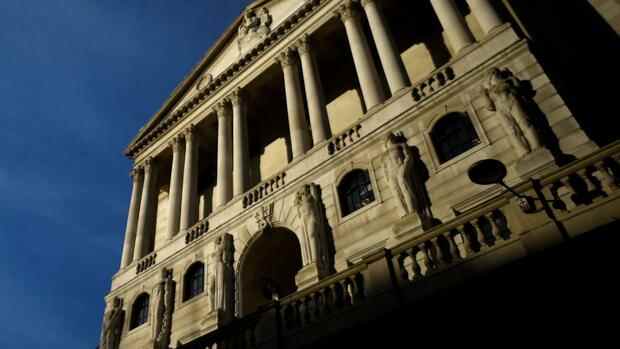The central bank had raised interest rates to counteract the upward trend in prices.
(Photo: Reuters)
London Thanks to falling oil prices, the inflation rate in Great Britain also fell slightly to 9.9 percent in August. In July, consumer prices rose by 10.1 percent. It is the first decline in inflation in almost a year.
The National Statistics Office (ONS) attributed the slight easing on the inflation front primarily to the fall in petrol prices by almost seven percent. However, economists do not see the all-clear and most expect that the Bank of England (BoE) will raise interest rates by a further 50 basis points next week.
The main reason for concern for the central bankers is that both food prices and the cost of services will continue to rise. British consumers paid 13.4 percent more for their groceries in August than a year ago.
Paul Dales, economist at the think tank Capital Economics in London, therefore does not assume that inflation in Great Britain has already peaked. “The Bank of England will have to tighten the (interest) screw further,” said the economist.
Top jobs of the day
Find the best jobs now and
be notified by email.
Additional pressure for policymakers to act comes from the UK labor market, where the unemployment rate fell to 3.6 percent in the three months to July, its lowest level since 1974. Wage pressures in a tight labor market, fueled by numerous industrial disputes in various sectors and the rise in long-term sick leave, could push home-grown inflation higher.
Prices are rising, the economy is stagnating
With economic growth stalling in the second quarter, the Bank of England is caught in a stagflation dilemma: prices are rising, the economy is stagnating. Within the group of the seven leading industrialized nations (G7), Great Britain remains the country with the highest inflation and the lowest economic growth.
BoE boss Andrew Bailey has already made it clear that the central bank will first and foremost try to bring the inflation rate back to the target value of two percent.
According to a survey by the Reuters news agency, 40 out of 47 economists surveyed expect the Bank of England to raise interest rates again by half a percentage point, as it did in August. The key interest rate is currently 1.75 percent and, according to economists, could rise to up to three percent in the coming months.
The Monetary Policy Committee meeting has been postponed by a week to September 22 due to the funeral service for the late Queen Elizabeth II.
Until recently, economists at Citibank assumed that consumer prices could climb to 18 percent by the beginning of next year, driven by the sharp rise in energy prices.
However, since the new British government under Prime Minister Liz Truss announced a state price cap for gas last week, economists have revised their forecasts downwards. James Smith, an economist at Dutch bank ING, now expects inflation to peak at around 11 percent early next year.
However, the government’s aid package worth around 150 billion pounds (about 175 billion euros) also has a catch – at least for the central bankers. Although the massive increase in government spending will ease the recession expected by the Bank of England, at the same time the fiscal policy cash injection could mean that consumer prices remain at a high level for longer. Especially since Truss not only launched energy aid, but also promised the British additional tax cuts.
Huw Pill, chief economist at the Bank of England, warned last week that additional fiscal stimulus from the government is likely to have an inflationary effect on the economy and could force central bankers to tighten monetary policy further.
More: Why inflation in the US and Europe has different causes.


